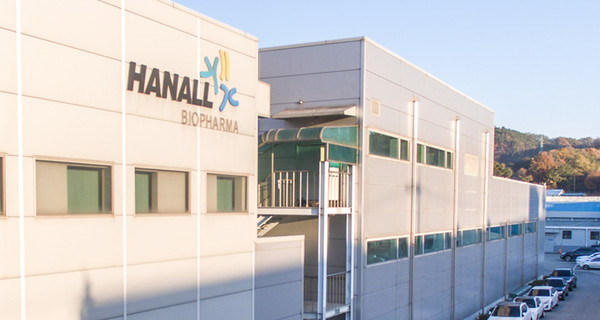
HanAll Biopharma announced on Tuesday that its autoimmune disease treatment, batoclimab (HL161BKN), has been designated as an orphan drug for thyroid eye disease (TED) by the Ministry of Health, Labour and Welfare of Japan.
Orphan drug designation (ODD) is granted to treatments that meet specific criteria, including the number of patients, unmet medical needs, and development potential, with a target population of approximately 50,000 or fewer. In Japan, an estimated 35,000 people have TED. Treatments designated as orphan drugs receive various benefits, such as market exclusivity and tax incentives, for up to 10 years after marketing authorization.
According to HanAll Biopharma, batoclimab is a novel antibody designed to eliminate pathogenic autoantibodies that cause autoimmune diseases. Developed as a subcutaneous injection formulation, it is expected to allow for self-administration by patients, enhancing treatment convenience and improving their quality of life.
In collaboration with Immunovant, a Nasdaq-listed U.S. firm, HanAll Biopharma is developing batoclimab for various autoimmune diseases, including myasthenia gravis (MG), TED, and chronic inflammatory demyelinating polyneuropathy (NMOSD). The company is currently conducting a phase 3 trial in Japan for TED and anticipates announcing top-line results later this year.
Related articles
- HanAll Biopharma reports 90% profit decline in 2024 despite revenue growth and R&D expansion
- [JPM2025] HanAll Biopharma’s US partner says its drug is ‘sufficiently differentiated’ from competitors
- HanAll pulls plug on Harbour BioMed’s batoclimab deal over stalled trials
- HanAll sticks with batoclimab in Asia as Immunovant drops US plans for next-gen drug
- HanAll hits back in Harbour BioMed arbitration, seeks to terminate $81 mil. batoclimab deal
- HanAll's US partner Immunovant to unveil 6-month remission data for Graves’ disease therapy at ATA 2025
- HanAll partner Immunovant reports long-term benefit of batoclimab in Graves’ disease trial

